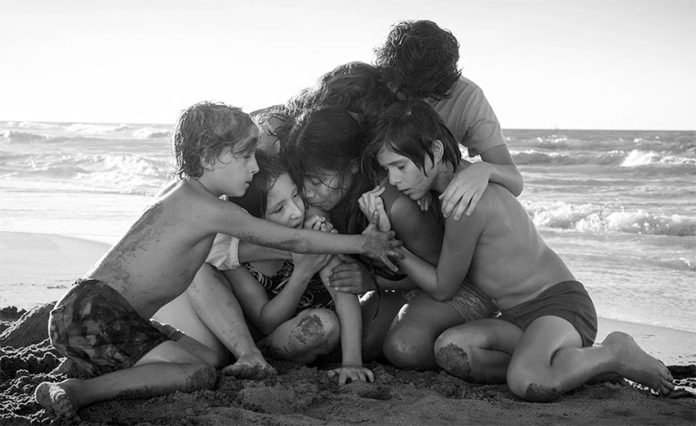Nearly a year after its world premiere at the Venice International Film Festival, Roma continues to triumph.
This time, Alfonso Cuarón’s acclaimed film raked in 10 of the 15 awards for which it was nominated at the Ariel Awards, Mexico’s version of the Oscars.
Cuarón was unable to attend for personal reasons, but most of the cast and crew of the multi-Oscar-winning film were present to collect their awards, which included best picture, director, supporting actress for Marina de Tavira’s role in the film, photography, original screenplay, editing, sound, art design, visual effects and special effects.
In a video message, Cuarón apologized for his absence at the ceremony and highlighted Roma’s distribution in Mexico.
“The release of Roma in Mexico was unparalleled. It was my priority to ensure that a large number of independent movie theaters and large open-air events could screen the picture to reach the largest number of people.
“That is why I am very sad that I was not able to be with you tonight. I feel deeply honored and would like to congratulate all the other movies and friends who received nominations. I am deeply grateful to be a part of a community that is known for its fraternity, solidarity and generosity.”
Roma is only the second of Cuarón’s films to win an Ariel Award; the first was his 1992 picture Sólo con tu pareja, which received an award for best original story. However, in 2001 he chose not to submit Y tu mamá también in protest against the academy’s voting practices.
Ilse Salas, who won an Ariel for best actress by edging out Roma’s Yalitza Aparicio, used her acceptance speech to declare “Ya es hora” (time’s up) in solidarity with a crowd of protesters who gathered at the ceremony to demand equal pay, increased representation and measures to address sexual harassment and gender violence in the film industry.
“As women, we have many stories to tell, and we want to tell them now because you, gentlemen, have already had your chance. Time’s up!”
Several actors and directors also took advantage of the event to criticize the federal government’s budget cuts to cultural spending, which included moving this year’s awards ceremony from the Bellas Artes palace in downtown Mexico City to the Cineteca Nacional.
“[Culture] is not an expenditure; it is vital. It is not just an adornment; it is a long-term investment. Those of us who are creators are not the enemy; we are committed to the reality of this country,” said Academy president Ernesto Contreras.
Carlos Morales, who won an Ariel for best short documentary for his picture Sinfonía de un mar triste, said that his project had been made possible by a Fonca scholarship, a program that has been criticized by lawmakers.
Source: El Universal (sp)
